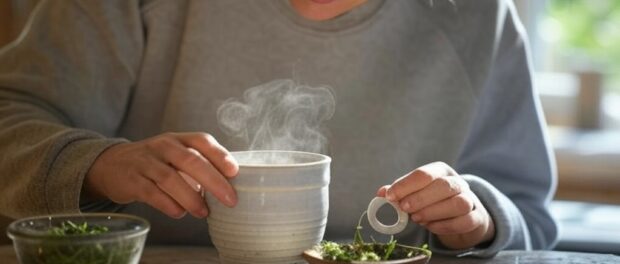7 Benefits of Using Infusions and Decoctions

Infusions and decoctions have been used for centuries as natural methods to extract the medicinal and nutritional properties of herbs, roots, and other plant materials. These traditional preparation methods are commonly utilized in herbal medicine, Ayurveda, and holistic wellness practices. Understanding the benefits of infusions and decoctions can help individuals make the most of plant-based remedies for health and well-being.
What Are Infusions and Decoctions?
Infusions
Infusions are made by steeping delicate plant parts, such as leaves, flowers, and soft stems, in hot or cold water to extract their beneficial compounds. This method is ideal for herbs that release their properties easily without prolonged heating. Common examples include:
- Herbal teas (e.g., chamomile, peppermint, and green tea)
- Medicinal tisanes
- Floral waters
Infusions are generally prepared by pouring hot water over the plant material and allowing it to steep for a specific period, usually between 5 and 30 minutes, depending on the herb being used.
Decoctions
Decoctions involve boiling tougher plant materials; such as roots, bark, seeds, and woody stems—to extract their active constituents. The process requires simmering the plant material for an extended period, often ranging from 20 minutes to several hours. Decoctions are commonly used for:
- Root-based herbal medicines (e.g., ginger, ginseng, and licorice root)
- Bark-based remedies (e.g., cinnamon, willow bark)
- Hard seeds and berries (e.g., elderberry, fennel seeds)
Health Benefits of Infusions and Decoctions
- Enhanced Absorption of Nutrients and Bioactive Compounds
Both infusions and decoctions break down plant materials, making it easier for the body to absorb vitamins, minerals, and antioxidants. For example:
- Green tea infusions are rich in catechins, known for their anti-inflammatory and antioxidant effects.
- Ginger decoctions release gingerols, compounds that aid digestion and reduce nausea.
2. Natural Detoxification
Infusions and decoctions help cleanse the body by promoting liver function, flushing out toxins, and enhancing kidney function. Herbal infusions like dandelion or nettle tea support detoxification, while decoctions of burdock root or milk thistle can aid liver health.
- Strengthening the Immune System
Many herbal infusions and decoctions have antimicrobial and antiviral properties. For example:
- Elderberry decoctions are known to boost immunity and fight colds.
- Echinacea infusions support the immune system by increasing white blood cell activity.
4. Digestive Health and Gut Support
Infusions and decoctions can aid digestion and alleviate gastrointestinal discomfort. Chamomile infusions soothe an upset stomach, while fennel seed decoctions reduce bloating and gas. Ginger decoctions are also widely used to alleviate nausea and indigestion.
- Stress Relief and Mental Well-being
Certain herbal infusions, such as lemon balm and valerian root, help reduce stress and promote relaxation. Adaptogenic herbs like ashwagandha and rhodiola, when prepared as decoctions, help regulate stress hormones and improve mental clarity.
- Improved Circulation and Cardiovascular Health
Herbal infusions like hibiscus tea help lower blood pressure, while decoctions of hawthorn berries are known to support heart health by improving circulation and strengthening blood vessels.
- Support for Respiratory Health
Infusions and decoctions can be beneficial for respiratory conditions such as colds, congestion, and bronchitis. Licorice root decoctions act as expectorants, while thyme infusions help clear mucus and ease coughs.
How to Prepare Infusions and Decoctions Effectively
Making an Infusion:
- Boil water and pour it over the plant material.
- Cover the container to retain volatile oils and let it steep.
- Strain and consume while warm or store for later use.
Making a Decoction:
- Add the plant material to cold water in a pot.
- Bring to a boil, then reduce heat and simmer.
- Strain and drink as needed.
Infusions and decoctions provide an effective and natural way to enjoy the health benefits of various herbs, roots, and plant materials. Whether used for daily wellness, immune support, or specific health concerns, these preparation methods unlock powerful healing properties in an accessible and cost-effective manner. By incorporating infusions and decoctions into a regular health routine, individuals can enhance their overall well-being naturally and holistically.



